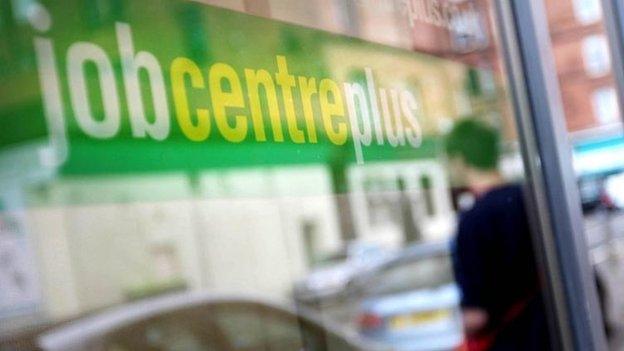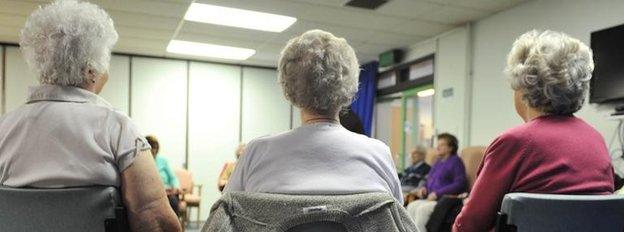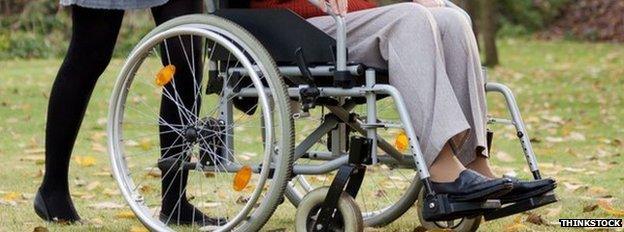Q&A: The benefits cap and you
- Published

Jobseeker's Allowance is among the benefits that count towards the cap
The government says that households claiming benefits should be no better off than the average family in work.
The result is the benefits cap, which was introduced across England, Scotland and Wales over the summer of 2013. It limits how much any one household can receive in state benefits.
This is one of a series of changes to the benefits system, in a major overhaul that affects millions of people.
More recently, Parliament agreed to a more wide-ranging cap on welfare spending as a whole.
This has been set at £119.5bn for 2015-16, the first year it will take effect. This figure excludes the state pension and some unemployment benefits.
If the government exceeds this level of welfare spending, then the chancellor must explain the situation to Parliament and a vote must be held to endorse the additional spending.


What is the benefits cap?
This affects individuals directly.
Under the policy, couples with or without children, or lone parents with a child, can claim £500 a week in benefits. Single adults can claim no more than £350 a week.
In comparison, the average UK salary of £27,000 works out at about £400 take-home pay a week.

Which benefits count towards the cap?
Bereavement Allowance, Carer's Allowance, Child Benefit, Child Tax Credit, Employment and Support Allowance (except where paid with the support component), Guardian's Allowance, Housing Benefit, Incapacity Benefit, Income Support, Jobseeker's Allowance, Maternity Allowance, Severe Disablement Allowance, Widowed Parent's Allowance, Widowed Mother's Allowance and Widow's Pension (including the age-related component).

Which benefits does that leave that do not count towards the cap?
Bereavement Payment, Council Tax Benefit (or its replacement), Discretionary Housing payments, Social Fund payments (including cold weather payments), Pension Credit, Residency Order payments, Adoption Pay, Maternity and Paternity Pay, Statutory Sick Pay and Winter Fuel Payment.


Some people are exempt from the cap, who are they?
No pensioners are subject to the benefits cap, as it only affects people of working age.
No-one who works enough hours to claim Working Tax Credit is affected.
The cap will also not apply in any household where the claimant, the partner or a child receives any of the following benefits: Disability Living Allowance or Personal Independence Payments, Attendance Allowance, the support component of Employment and Support Allowance, Industrial Injuries Benefits (including war disablement pensions), War Widows' and War Widowers' pensions.

How is the money taken back if an individual's benefits exceed the cap?
Individuals in this situation lose some of their Housing Benefit, which is paid to help people with their rent.
The government says this is "returning fairness" to the benefits system. Labour backed the idea of a cap, but has suggested the idea of setting it at different levels in different parts of the country.
The government has made some money available through local authorities, designed to help individuals with extra costs, such as moving home.


How is the welfare cap different?
The benefits cap is a limit on the amount paid to individuals.
The welfare cap is a limit on benefits spending overall.
Again, the idea was supported by Labour.
In March, MPs agreed a welfare cap of £119.5bn in 2015-16, excluding the state pension and some unemployment benefits.

Is that figure achievable?
The government says there is no chance that this limit will be breached.
However, internal government memos seen by the BBC suggest the costs of Employment and Support Allowance (ESA) - the main, new sickness benefit - are rising and few cost-cutting options are available.
As a result, there is a risk, the documents say, of the welfare cap being breached, although a Department for Work and Pensions (DWP) spokesman said the projections were "spurious scenarios" based on no action being taken.